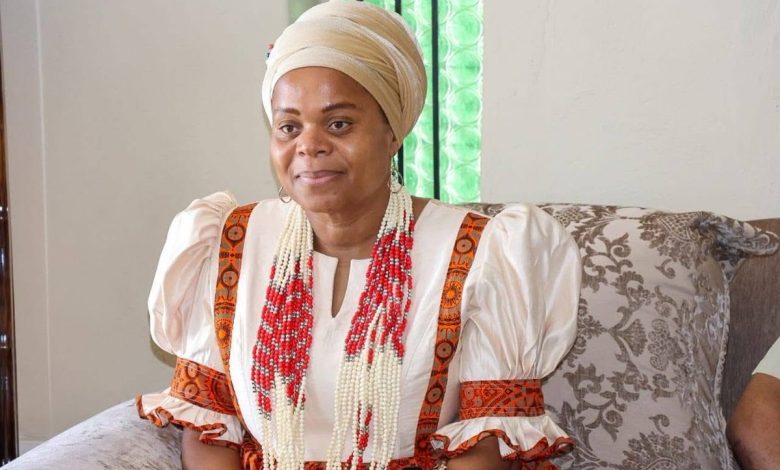New council offices open for Bakwena ba Matsepe in Sekhukhune district

Premier Dr. Phophi Ramathuba recently handed over brand-new, modern traditional council offices to the Bakwena ba Matsepe community in the Elias Motswaledi Local Municipality, within the Sekhukhune District. These state-of-the-art facilities are designed to bring essential government services closer to the people, featuring offices for a councillor, a social worker, a traditional court, and even a dedicated space for Home Affairs services, marking a significant step towards improved service delivery.
Key details of the initiative
- Premier: Dr. Phophi Ramathuba, Premier of Limpopo Province.
- Location: Bakwena ba Matsepe Traditional Council, situated in the Elias Motswaledi Local Municipality, Sekhukhune District, Limpopo Province.
- Beneficiary Community: The people of Bakwena ba Matsepe and surrounding areas.
- Facilities Included:
- Office for the local Councillor (Cllr).
- Dedicated office for a social worker.
- Modern traditional court.
- Facility for Home Affairs services.
- Other administrative spaces to support traditional leadership.
- Overarching Goal: To decentralise government services, enhance their accessibility for rural communities, and strengthen the crucial role of traditional leadership in local governance and community development.
Bringing government to the people: A new era for Bakwena ba Matsepe
In a momentous occasion for the Bakwena ba Matsepe community, Premier Dr. Phophi Ramathuba officially unveiled state-of-the-art traditional council offices, promising a new chapter of accessible and efficient government services. The handover of these modern facilities in the Elias Motswaledi Local Municipality, Sekhukhune District, underscores the Limpopo Provincial Government’s commitment to ensuring that no community is left behind in accessing vital public services. For more information on provincial initiatives, please visit the official Limpopo Province website at www.limpopo.gov.za.
The newly constructed offices are not just buildings; they are a beacon of convenience and progress. Designed to be a one-stop service point, they house essential departments that directly impact the daily lives of residents. The inclusion of an office for the local Councillor ensures that community voices are heard and local issues addressed effectively. A dedicated social worker’s office will provide much-needed support and intervention for vulnerable individuals and families, addressing social welfare needs right at the community’s doorstep.
Furthermore, the establishment of a modern traditional court within the complex strengthens the role of traditional leadership in maintaining peace, resolving disputes, and upholding cultural norms within the community. This integration of formal and traditional justice systems is crucial for holistic community development. Perhaps one of the most significant additions is the facility for Home Affairs services, which will spare residents the long and costly journeys to distant towns for essential documentation like identity documents, birth certificates, and marriage registrations.
Premier Dr. Ramathuba emphasised that these offices are a tangible demonstration of the government’s strategy to bridge the gap between service providers and citizens, particularly in rural areas. By decentralising these functions, the government aims to empower traditional councils to play an even greater role as facilitators of development and service delivery. This initiative aligns with the broader vision of a responsive and people-centred government, ensuring that every citizen, regardless of their geographical location, can access the services they deserve. Stay updated on further developments and news from the Premier’s Office by visiting Premier’s Office News.
Frequently asked questions (QA)
1. What specific government services can I access at these new offices?
You can access services related to your local Councillor, social welfare support from a dedicated social worker, traditional court proceedings for community disputes, and essential Home Affairs services like applications for identity documents, birth certificates, and death certificates.
2. Who is eligible to use the services offered at the Bakwena ba Matsepe Traditional Council offices?
These services are primarily intended for the residents of the Bakwena ba Matsepe community and surrounding villages within the Elias Motswaledi Local Municipality, aiming to serve everyone in the local area.
3. What are the typical operating hours for the offices?
While specific hours might vary, government offices generally operate from Monday to Friday, typically between 8:00 AM and 4:30 PM. It is advisable to confirm with the local office for precise times, especially for specific services like Home Affairs.
4. Will there be any cost involved for accessing these government services?
Most basic government services, especially social welfare support and traditional court services, are usually free of charge. For Home Affairs services, standard government fees may apply for certain applications, such as for new ID cards or unabridged certificates. These fees are set nationally.
5. How will these new offices benefit the Bakwena ba Matsepe community directly?
The primary benefits include saving time and money previously spent travelling to distant towns for services, improved access to vital social support, faster resolution of local disputes through the traditional court, and better representation through the local Councillor’s accessible office. It brings government closer to your doorstep.
6. Are there plans to establish similar traditional council offices in other parts of Limpopo Province?
Yes, the provincial government, under the leadership of Premier Dr. Phophi Ramathuba, is committed to enhancing service delivery across the province. This initiative is part of a broader strategy to strengthen traditional institutions and decentralise services, and similar projects may be rolled out based on needs and resources in other communities.
7. What documents should I bring when visiting the Home Affairs section at the new offices?
For Home Affairs services, it’s always best to bring your existing identity document (if applicable), birth certificate, marriage certificate (if applicable), and any supporting documents required for the specific service you need (e.g., parental IDs for birth registrations, affidavits). It is recommended to inquire beforehand for specific requirements.
8. How can I contact the social worker at the new traditional council offices?
You can visit the social worker’s office directly during operating hours, or inquire at the traditional council reception for contact details or appointment scheduling. The aim is to make these services easily reachable for those in need.
9. What types of cases does the traditional court handle?
The traditional court typically handles community-level disputes, customary law matters, land issues, minor civil disputes, and some petty criminal offences according to traditional customs and practices, aiming for reconciliation and restorative justice within the community.
10. How do these new offices empower traditional leadership?
These offices provide traditional leaders with modern infrastructure and resources to effectively carry out their administrative, social, and judicial duties. By housing key government services, they empower traditional councils to act as central hubs for community development and engagement, reinforcing their authority and relevance in local governance.





